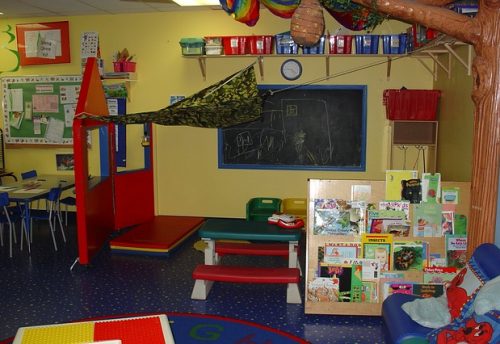
10 Tips To Be A Good Parent
Who’s the biggest influence on children? It’s the parents.
It is quite tough for first-time parents or even experienced parents to be a good influence on children.
Shifting your parenting approach is a big transition, and you can expect some bumps as you and your child learn new patterns of relating. It doesn’t mean that you’re doing anything wrong.
In fact, what’s happening is that you’re healing old hurt feelings so they stop driving new bad behavior.
It is the most important thing about parenthood, here are a few important things you must do to be a peaceful parent and give your child the life he deserves.
10 Tips To Be A Good Parent are as follows:
1. Start With Yourself
The “peace” in peaceful parenting comes from you. Specifically, from your commitment to regulate your own emotions.
That means that when you feel upset, you stop, drop your agenda (temporarily), and breathe.
You notice the sensations in your body, which helps you be more present, so you don’t get hijacked by anger.
2. Focus on Connecting
Positive parenting doesn’t work without the connection.
Start spending at least 15 minutes connecting one-on-one with each child daily, just following his lead and pouring your love into him.
You’ll be amazed at the difference in the way he responds to your requests.
So before you change anything else with your child, start building up your bond.
3. Keep Setting Limits
You become more flexible as you see it from your child’s point of view more often, and that’s a good thing.
But you’ll still need to set plenty of limits.
The key is to set the limit BEFORE you get angry, while you still have a sense of humor and can empathize with her perspective.
Acknowledging her perspective is what helps a child cooperate with us.
4. Create Safety
When your child shows you her upsets, stay calm. Don’t take it personally.
The more you stay compassionate and accepting, the more she’ll feel safe enough to show you the wounds behind her anger.
Expressing those tears and fears is healing.
Once she shares them with you and she doesn’t even need to know what they’re about or to use words those feelings will evaporate, and she won’t need that chip on her shoulder to protect herself.
5. Teach Reparations
If you’ve been punishing, you’ll feel unfinished if your child breaks a rule and you don’t punish him. Train yourself to think in terms of repair, instead.
So after everyone has calmed down and is feeling reconnected, have a private discussion with your child about what happened. Listen to his perspective and empathize.
6. Expect Setbacks
You’re human, so you aren’t perfect.
The secret of making this transition is having compassion for yourself, just as you do for your child.
Expect to make mistakes.
Expect some days to be a huge struggle.
Parenting is hard, and this kind of parenting is even harder when you start.
But it gets easier.
And even while it’s hard, you’re healing your child’s old wounds and your own so you’ll feel the difference.
Quite simply, there’s less drama and more love.
7. Reflecting
Many of us want to parent differently from our parents.
Even those who had a happy childhood may want to change some aspects of how they were brought up.
But very often, when we open our mouths, we speak just like our parents did.
Reflecting on our own childhood is a step towards understanding why we parent the way we do.
Make note of things you’d like to change and think about how you’d do it differently in a real scenario.
Try to be mindful and change your behavior the next time those issues come up.
Don’t give up if you don’t succeed at first.
It takes practice. Lots of practice.
8. Keeping Perspective
What is your goal in raising a child?
If you’re like most parents, you want your child to do well in school, be productive, be responsible and independent, enjoy meaningful relationships with you and others, be caring and compassionate, and have a happy, healthy and fulfilling life.
But how much time do you spend on working towards those goals?
If you’re like most parents, you probably spend most of the time just trying to get through the day.
There is no particular way to raise a child.
There are many wrong ways we can raise a child and many good ways too.
I’ll let you figure the answer to this one on your own.
9. Don’t Hold Back on Love
There is no such thing as loving your child too much. Loving them cannot spoil them.
Only what you choose to do (or give) in the name of love can — things like a material indulgence, leniency, low expectation, and over-protection.
When these things are given in place of real love, that’s when you’ll have a spoiled child.
Loving your child can be as simple as giving them hugs, spending time with them and listening to their issues seriously.
Showing these acts of love can trigger the release of feel-good hormones such as oxytocin, opioids, and prolactin.
These neurochemicals can bring us a deep sense of calm, emotional warmth and contentment, from these the child will develop resilience and not to mention a closer relationship with you.
10 Modeling
Walk the walk. Don’t just tell your child what you want them to do. Show them.
Human is a special species in part because we can learn by imitation.
We are programmed to copy other’s actions to understand them and to incorporate them into our own.
Children, in particular, watch everything their parents do very carefully.
So, be the person you want your child to be — respect your child, show them positive behavior and attitude, have empathy towards your child’s emotion — and your child will follow suit.
Need help?
We are the best preschool in India. Contact Us, message us for any issues. We will love to help you.





One Comment